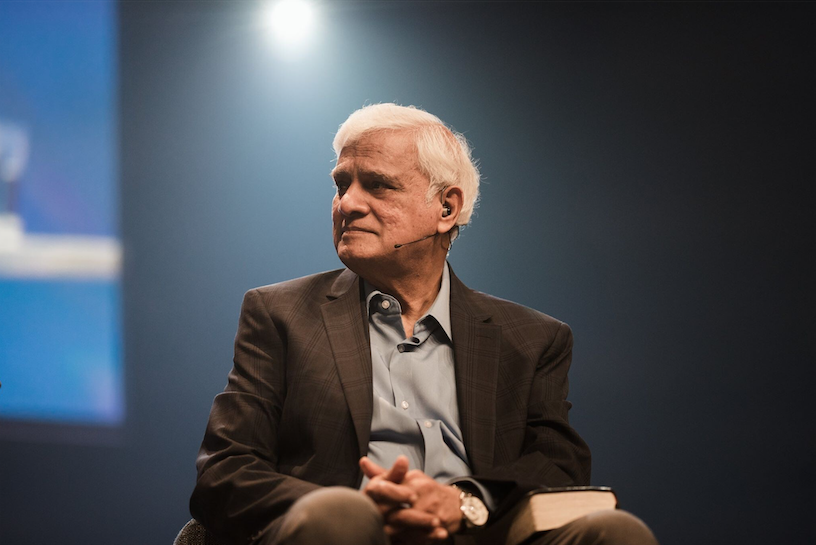![]()
Editor’s note: On March 10, Ravi Zacharias International Ministries (RZIM) made the announcement that they will no longer do apologetics work. Instead, they will operate as a grant-making charity, and they expect to lay off 60% of their staff, according to Christianity Today. This announcement broke after this article was written.
Following three allegations made in August 2020 that late Christian apologist Ravi Zacharias engaged in sexual misconduct and abuse in connection with two day spas, his namesake organization, Ravi Zacharias International Ministries (RZIM) commissioned a law firm, Miller & Martin PLLC, to conduct an independent investigation.
In its Feb. 9, 2021 report, Miller & Martin PLLC confirmed one of the allegations made in August, found damning evidence of Zacharias’ “sexual misconduct involving additional massage therapists…text- and email-based relationships with women who were not his wife, as well as more than 200 “selfie”-style photographs of women,” including nude pictures of at least one woman. Some female therapists reported “serious and sustained” sexual assaults, one woman describing her experiences over a period of years as rape, her and others reporting that he had groomed and bribed them in expectation of or exchange for sexual favors.
In many of these instances, Zacharias reportedly attempted to win trust through “probing conversation,” often concerning the deeply personal issues of his therapists, using his status and even religious expressions to “gain compliance.”
Zacharias, who passed away last May, was a world-renowned and respected Christian apologist and author with a considerable platform and following. The shocking revelations of his immoral activities have obliterated his legacy and left his namesake ministry, RZIM, to reckon with the substantial fallout. The organization has taken all of its website’s content down, save for two pages: an open letter from the International Board of Directors of RZIM concerning the investigation and how the organization plans to move forward, as well as a brief explanation for why it made public the private investigation.
In the open letter, the organization expresses a “deep need for corporate repentance,” and states that it has hired a management and compliance consulting firm to conduct a thorough evaluation of RZIM. The open letter states, “We regret that we allowed our misplaced trust in Ravi to result in him having less oversight and accountability than would have been wise and loving. We also regret the ways that many of us have publicly extolled Ravi’s character and the impact this will have had on victims of his abuse.” RZIM also outlines a restitution plan for victims of Zacharias’ abuse.
Beyond the damage done to those he took advantage of and allegedly abused as well as his own organization, what do the revelations about Zacharias and his now shattered credibility mean for those impacted by his ministry and Christians in general?
Psalm 146:3, “Do not trust in princes, in mortal man, in whom there is no salvation,” is made jarringly appropriate. It would be easy to comfortably condemn Zacharias from a place of illusory self-righteousness, but what we should all remember is that we too are capable of falling to the same depths. Many, if not most of us, already have, in some form or fashion. “Do not trust in princes, in mortal man,” applies to everyone, ourselves included.
Remember that, as it says in Matthew 7:2, “in the way you judge, you will be judged; and by your standard of measure, it will be measured to you.” This does not excuse Zacharias—it does not excuse any of us. It is only through God’s grace that we have life and the hope of His salvation, of which no one is worthy.
Still, has everything that Zacharias taught been nullified by his failures? What effect, if any, did the messenger have on the message, or vice versa? Clearly, Zacharias acted contrary to the words he spoke. Whatever the man actually believed, however perverted his way, he was a vehicle for bringing thousands, possibly millions to Christ.
The Apostle Paul says in Philippians 1:15-18, “Some, to be sure, are preaching Christ even from envy and strife, but some also from good will; the latter do it out of love…the former proclaim Christ out of selfish ambition rather than from pure motives…What then? Only that in every way, whether in pretense or in truth, Christ is proclaimed; and in this I rejoice.”
No matter who you are, what you’ve done, or where you are, God can use you for His good purpose. The tragedy, as in the case of Zacharias, would be failing to understand and embrace that good purpose.





